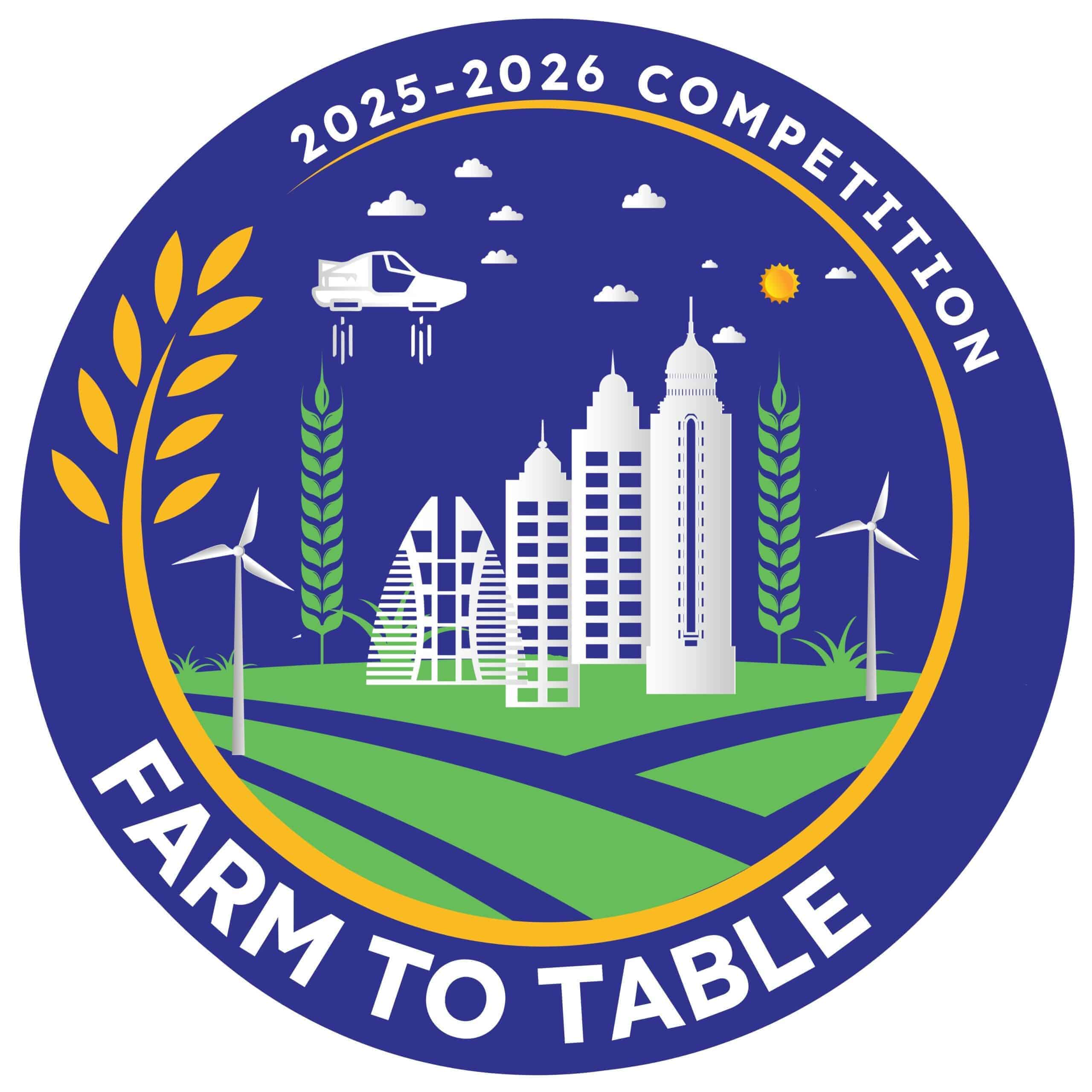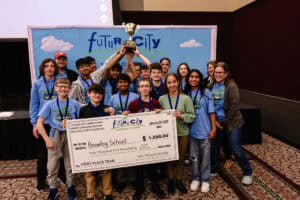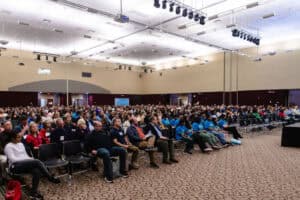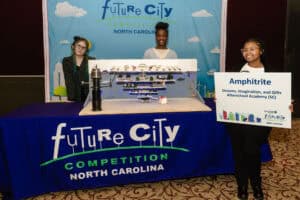
North Carolina Region History
Future Cities is a cross-curricular, project-based engineering education program that challenges middle-school students to imagine, design, and build cities of the future. Participants learn about the career of engineering, use the engineering design process to address civic and social issues, and become change-makers in their own communities. It is a unique STEM program in that it focuses on the sustainability of the Earth’s resources. Being cross-curricular, there are aspects of science, math, research, writing, communication, and 21 st Century skills embedded within the program. It is closely aligned with many educational standards in the North Carolina curriculum.
The Future Cities Competition, under the DiscoverE organization umbrella, first began in 1993. The first competition in North Carolina, formed in partnership with the Professional Engineers of NC organization, was held in January 2002 at the NC Museum of History in Raleigh. As the number of participating schools began to grow, the competition moved in 2007 to NC State University.
A red-letter day for the North Carolina region happened when the 2012 winner from NC placed first at the National Competition in Washington, DC, and got to meet the President in the Oval Office.
During the COVID outbreak, the competition in NC took a break for 1 year. Competition resumed virtually in the 2021-22 school year with 14 schools/23 teams participating. Since then, the program in North Carolina, again an “in-person” event, has grown exponentially:
- 2021-22 14 schools/23 teams
- 2022-23 19 schools/29 teams
- 2023-24 26 schools/42 teams (over 1000 people attended competition day)
- 2024-25 39 schools/teams
- 2025-26 64 registered schools (*as of Oct. 1, 2025)
In 2022, the NC Future Cities program became a part of Scholastic’s NCASA Challenge Cup.

In the 2024-25 school year, a Future Cities program for high school students began, with 5 teams from North Carolina participating.
Much of the growth in the NC region is due to a grant received from the NC Legislature which helped us to reach out to bring this opportunity to learn about engineering careers to more schools in our state. This grant has enabled our region to award stipends to teachers/coaches, provide travel expenses for schools to come to the regional competition in January, as well as provide monetary prizes for teams. As a result of this grant, the participation of Title 1 schools has doubled.
Are you interested in learning more? Contact Mary Beth Liles: fc.nc.outreach@gmail.com.

2025-2026 Future City Competition
This year’s theme: Farm to Table
Overview: While humans once grew food wherever they lived, today most of our food travels to us from far away. Modern cities make it easy to get groceries from the store—but at a cost. The way we grow, package, and throw away food creates problems for our planet. In fact, about 40% of all food produced ends up wasted, even as 783 million people around the world go hungry. Consider all the steps it takes to get food to your plate: farmers grow it, trucks move it, stores sell it, and finally, you eat it—or maybe you don’t. But wasted food doesn’t just disappear in a landfill—food waste takes up 28% of the world’s agricultural area, uses 25% of all water used by agriculture each year, and creates about 8% of global greenhouse gas emissions. That’s why cities of the future need to rethink how food moves through our lives. One big idea is using the principles of circular economy along the food production pathway —a system where instead of throwing things away, we find ways to reuse, recycle, or repurpose them. In recent years, engineers, scientists, farmers, manufacturers, and city planners are coming up with exciting new solutions like using waste products to feed livestock, designing reusable food packaging, and using smart bins that turn scraps into compost or energy. These systems don’t just eliminate waste, they protect the planet and keep communities strong.
The students’ challenge: Design a city that eliminates food waste from farm to table and keeps your citizens healthy and safe.


2025-26 Teacher Kickoff Meeting
2025-26 Essay Training

Competition Day 2025
Congratulations to all 35 of our North Carolina Future City Competition Teams and 3 South Carolina teams on a job well done!
We are proud to announce our 2024-2025 Winner of the North Carolina Regional – Pulau Karang from The Brawley School, IB. Now they are off to the national competition!
Congrats to the top finalists:
– 2nd Place – Neoterra (Morganton Day School)
– 3rd Place – Fuyu Toshi, Japan (STEM Skool)
– 4th Place – Jaloria (Fairview Elementary)
– 5th Place – Nagoya (Alston Ridge Middle School)
Also, congratulations to our winning team from South Carolina:
Amphitrite from Dreams Imagination and Gifts After School Academy, Williston SC



Pictures from 2025 Competition Day!

Region Resources
Here is a video from the 2023-24 competition:

Sponsors
There are many different ways to sponsor the Future Cities program. Engineering professionals can volunteer as mentors or judges to support our students. If you are interested register at this link:
Companies can also sponsor the competition financially. Thank you to the sponsors for the 2025-26 competition! If your company would like to become a sponsor, please see our sponsorship letter below.

If you would like to be a future sponsor for this competition, here is the Fundraising Request Letter, or complete the Future City Sponsorship Form.

Contact Us
Regional Coordinator – Mary Beth Liles
Email: FC.NC.Outreach@gmail.com
Logistics Coordinator – Vanessa LaClair
Email: FC.NC.Logistics@gmail.com











